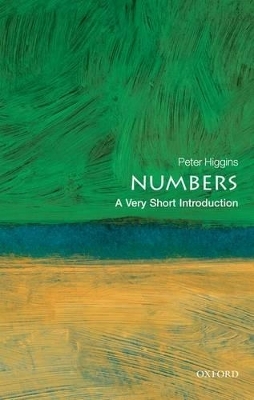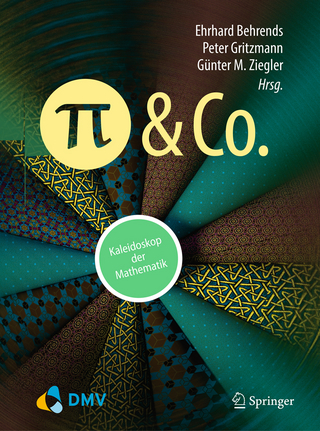
Numbers
A Very Short Introduction
Seiten
2011
Oxford University Press (Verlag)
978-0-19-958405-5 (ISBN)
Oxford University Press (Verlag)
978-0-19-958405-5 (ISBN)
In this Very Short Introduction Peter M. Higgins presents an overview of the number types featured in modern science and mathematics. Providing a non-technical account, he explores the evolution of the modern number system, examines the fascinating role of primes, and explains their role in contemporary cryptography.
Numbers are integral to our everyday lives and feature in everything we do. In this Very Short Introduction Peter M. Higgins, the renowned mathematics writer, unravels the world of numbers; demonstrating its richness, and providing a comprehensive view of the idea of the number.
Higgins paints a picture of the number world, considering how the modern number system matured over centuries. Explaining the various number types and showing how they behave, he introduces key concepts such as integers, fractions, real numbers, and imaginary numbers. By approaching the topic in a non-technical way and emphasising the basic principles and interactions of numbers with mathematics and science, Higgins also demonstrates the practical interactions and modern applications, such as encryption of confidential data on the internet.
ABOUT THE SERIES: The Very Short Introductions series from Oxford University Press contains hundreds of titles in almost every subject area. These pocket-sized books are the perfect way to get ahead in a new subject quickly. Our expert authors combine facts, analysis, perspective, new ideas, and enthusiasm to make interesting and challenging topics highly readable.
Numbers are integral to our everyday lives and feature in everything we do. In this Very Short Introduction Peter M. Higgins, the renowned mathematics writer, unravels the world of numbers; demonstrating its richness, and providing a comprehensive view of the idea of the number.
Higgins paints a picture of the number world, considering how the modern number system matured over centuries. Explaining the various number types and showing how they behave, he introduces key concepts such as integers, fractions, real numbers, and imaginary numbers. By approaching the topic in a non-technical way and emphasising the basic principles and interactions of numbers with mathematics and science, Higgins also demonstrates the practical interactions and modern applications, such as encryption of confidential data on the internet.
ABOUT THE SERIES: The Very Short Introductions series from Oxford University Press contains hundreds of titles in almost every subject area. These pocket-sized books are the perfect way to get ahead in a new subject quickly. Our expert authors combine facts, analysis, perspective, new ideas, and enthusiasm to make interesting and challenging topics highly readable.
Peter M. Higgins is currently Professor and Head of the Department of Mathematical Sciences at Essex University. He is a research algebraist but has written five popular mathematics books that bring mathematical matters to a wide audience. He is the inventor of Circular Sodoku, which has appeared throughout the world in magazines, books, the internet, and on handheld computer games.
1. How not to think about numbers: the trouble with bases ; 2. The unending series of primes ; 3. Perfect and not so perfect numbers ; 4. Cryptography: the secret life of the primes ; 5. Numbers that count ; 6. A peek below the waterline of the number iceberg ; 7. To infinity and beyond ; 8. Numbers but not as we know them ; Further Reading ; Index
| Reihe/Serie | Very Short Introductions |
|---|---|
| Zusatzinfo | 15 black and white halftones |
| Verlagsort | Oxford |
| Sprache | englisch |
| Maße | 120 x 173 mm |
| Gewicht | 135 g |
| Themenwelt | Sachbuch/Ratgeber ► Natur / Technik ► Naturwissenschaft |
| Mathematik / Informatik ► Mathematik ► Arithmetik / Zahlentheorie | |
| Naturwissenschaften | |
| ISBN-10 | 0-19-958405-2 / 0199584052 |
| ISBN-13 | 978-0-19-958405-5 / 9780199584055 |
| Zustand | Neuware |
| Haben Sie eine Frage zum Produkt? |
Mehr entdecken
aus dem Bereich
aus dem Bereich
Die glänzenden und die dunklen Jahre der Physik 1895-1945
Buch | Softcover (2023)
Klett-Cotta (Verlag)
14,00 €
wie sie denkt, fühlt und Probleme löst
Buch | Hardcover (2024)
Folio (Verlag)
26,00 €


